Awards:
-Gold in Multimedia / Social Media Campaign
-Gold Winner in Poster and Brochure Design for Social Change
-Silver Winner in Education for Social Change
-Silver Winner in Integrated Graphic Design for Social Change
-Bronze Winner in Branding for Travel
-Best Thesis Proposal Award (2024)
Conferences:
-52nd VPAP Annual Scientific Conference ("Collaborating for Excellence in Veterinary Care")
Project Overview:
This project focuses on fostering responsible interactions between visitors and the natural environment in Donsol, Philippines. The goal is to promote marine conservation while supporting the livelihoods and well-being of the local community. Through collaboration with stakeholders, the project aims to create meaningful connections between people and nature, ensuring the long-term sustainability of Donsol's whale shark ecotourism program and the preservation of its marine ecosystem
My Role:
I led the design and research efforts, collaborating with local communities to develop strategies that promote both marine conservation and sustainable livelihoods. As a co-creation facilitator, I conducted workshops to engage stakeholders and developed a peer researcher toolkit to train locals in data collection. I also applied interpretive and transition design methods to create meaningful connections between ecotourism and environmental stewardship, and as a graphic designer, I crafted visual materials that supported these initiatives.
Abstract:
This research explores the multifaceted landscape of whale shark ecotourism in Donsol, Philippines, amidst global marine conservation challenges. Through a meticulous investigation, it delves into the intersection of ecotourism and marine conservation, aiming to foster a shared commitment to environmental stewardship among stakeholders. Leveraging transition and interpretive design approaches, the study uncovers stakeholder dynamics, evaluates communication strategies, and proposes interventions to enhance marine conservation awareness. Central to the research is the development of Buhay Donsol, a comprehensive initiative dedicated to promoting responsible interactions and empowering local communities. The iterative process of feedback incorporation and ongoing
dialogue among stakeholders ensure the program's adaptability and effectiveness. Furthermore, the study presents a replicable research design that promises to inform similar ecotourism initiatives worldwide.
dialogue among stakeholders ensure the program's adaptability and effectiveness. Furthermore, the study presents a replicable research design that promises to inform similar ecotourism initiatives worldwide.
Research Design:
The research process unfolds in two distinct parts: secondary research followed by primary research. Secondary research was done to augment the existing body of knowledge and identify key studies and concepts that build the foundations of this study. As presented thus far, the insights gained from secondary research serve to enrich the existing body of knowledge, ensuring a comprehensive investigation of the local context in Donsol, Philippines. Furthermore, secondary research played a crucial role in informing the development of the stakeholder engagement map and service blueprint. These frameworks, in turn, also helped identify research gaps and assumptions, further informing the broader research goals. The research goals were then broken down into research objectives, guiding the selection of appropriate primary research methods to be discussed in the latter part of this section.
Secondary Research Highlights:
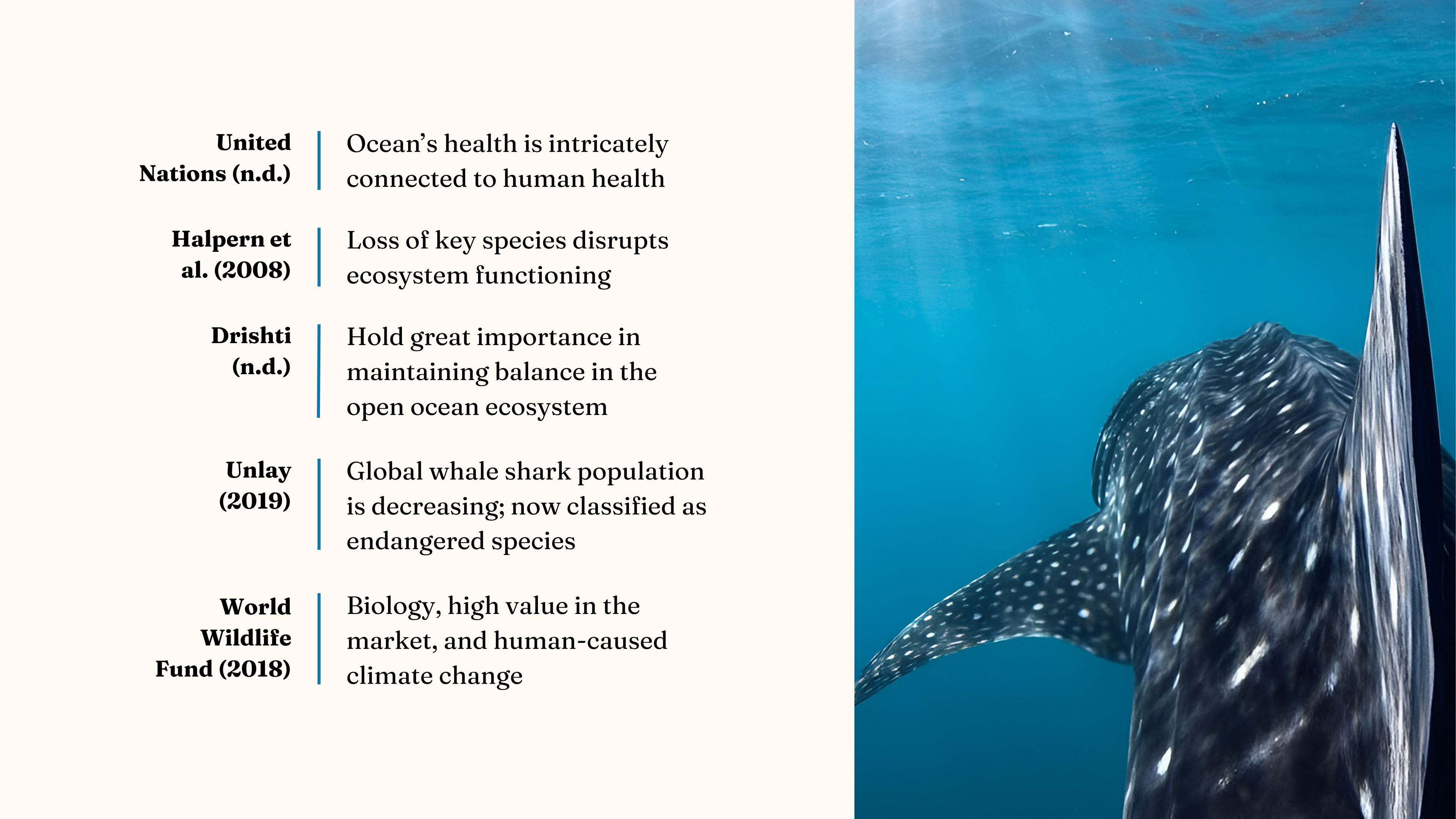
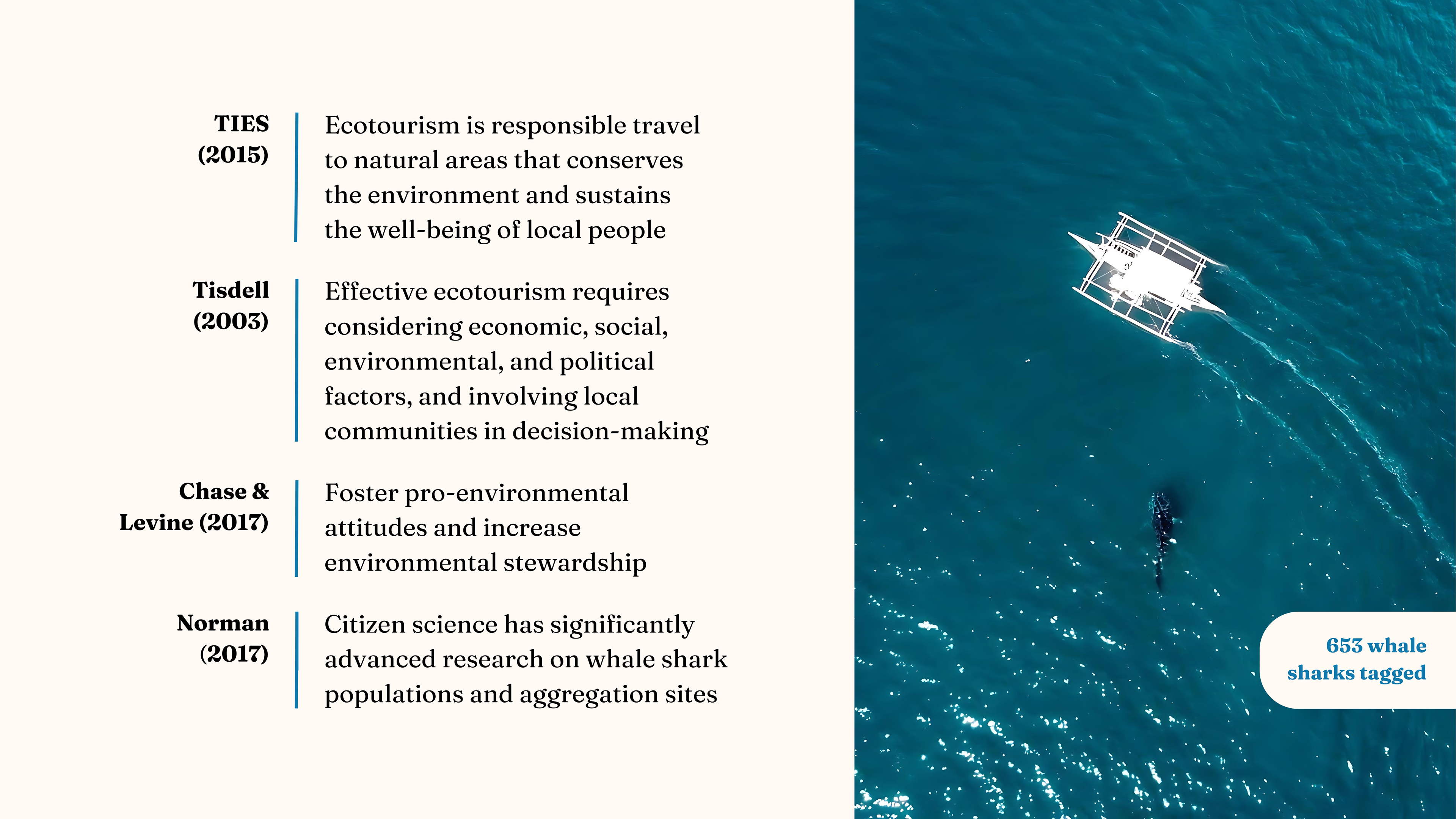
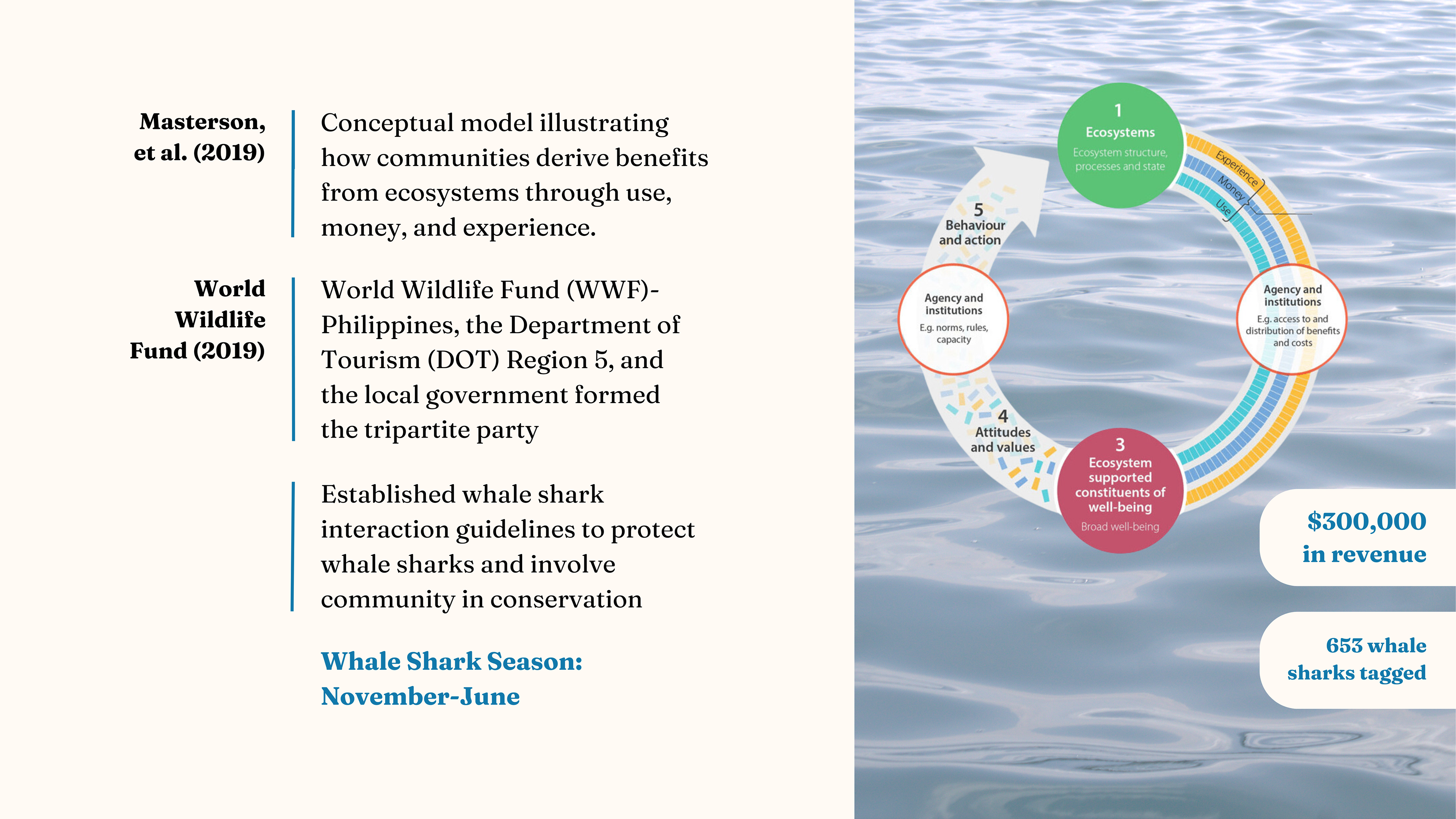
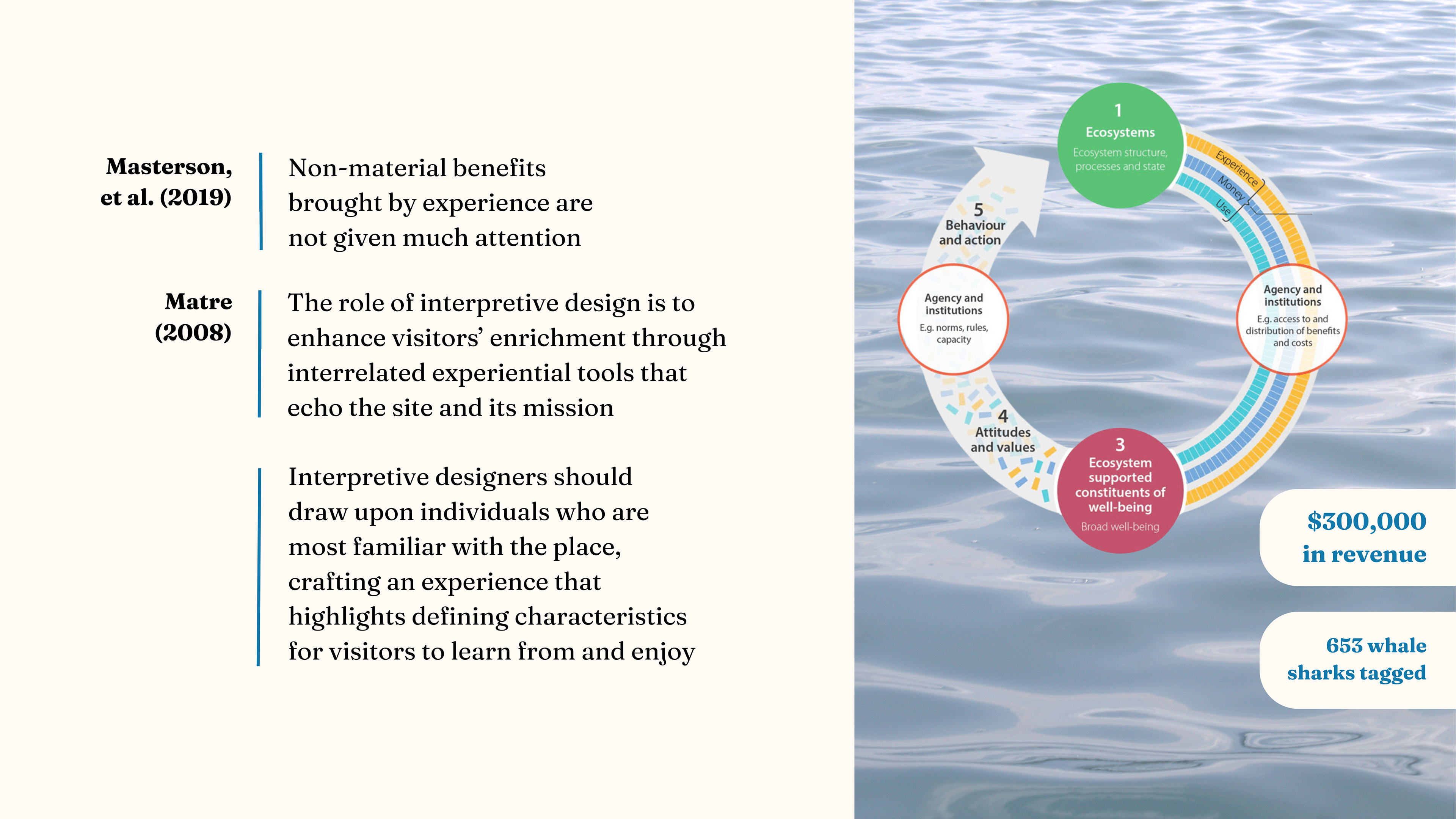
Primary Research:
The research goals are as follows:
1. Determine opportunities within the whale shark ecotourism program in Donsol to incorporate interpretive
design principles to foster a shared commitment to marine conservation.
a. Assess the communication strategies and channels employed by local stakeholders (interpreters) to
convey the importance of marine conservation and the role of visitors in supporting these efforts.
b. Analyze local stakeholder dynamics and influence.
c. Understand the interests and challenges faced by local stakeholders associated with the whale
shark ecotourism program in Donsol.
d. Assess the current level of understanding and engagement of local stakeholders in Donsol
regarding their role as stewards of whale sharks and the marine ecosystem.
1. Determine opportunities within the whale shark ecotourism program in Donsol to incorporate interpretive
design principles to foster a shared commitment to marine conservation.
a. Assess the communication strategies and channels employed by local stakeholders (interpreters) to
convey the importance of marine conservation and the role of visitors in supporting these efforts.
b. Analyze local stakeholder dynamics and influence.
c. Understand the interests and challenges faced by local stakeholders associated with the whale
shark ecotourism program in Donsol.
d. Assess the current level of understanding and engagement of local stakeholders in Donsol
regarding their role as stewards of whale sharks and the marine ecosystem.
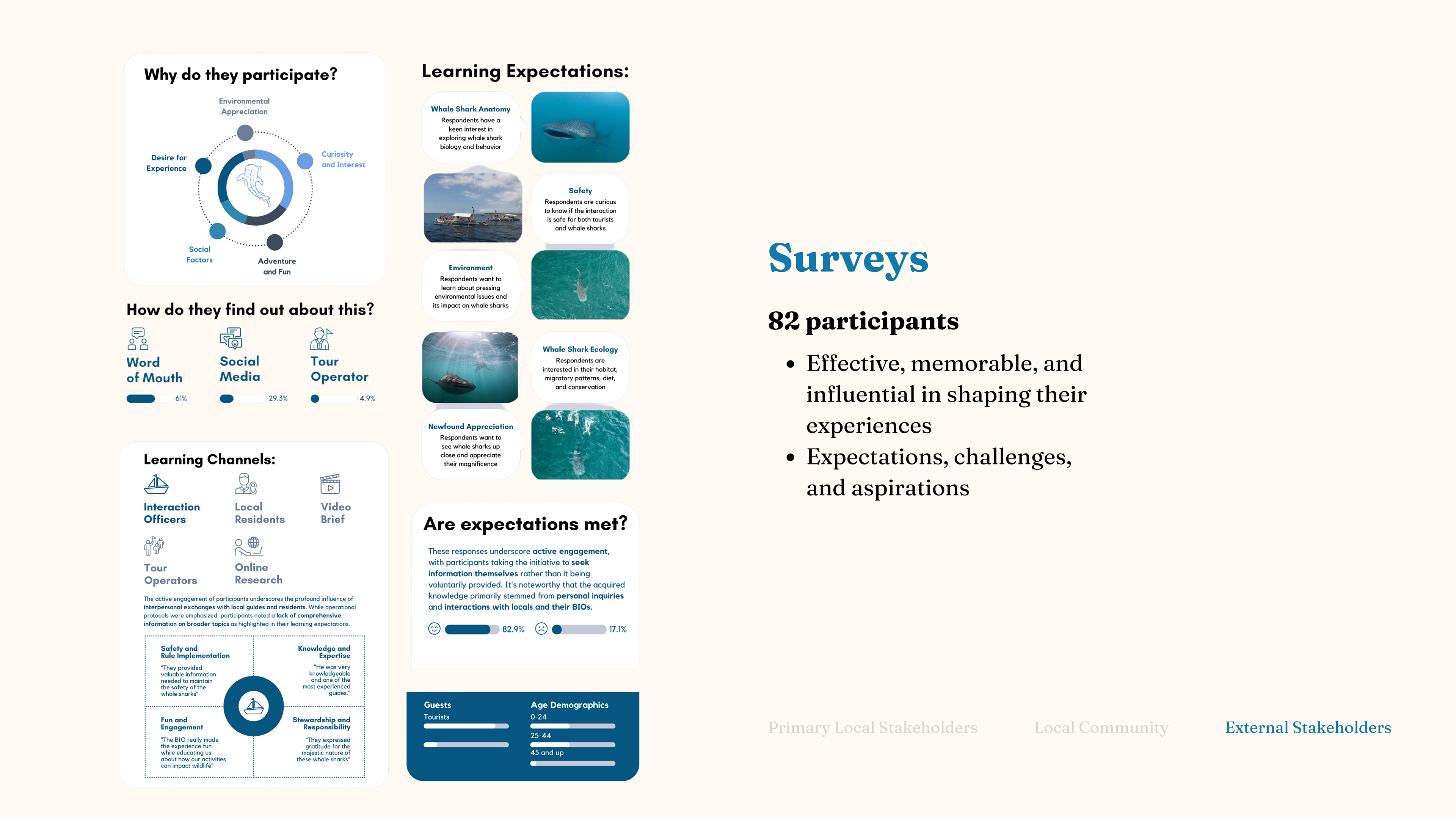
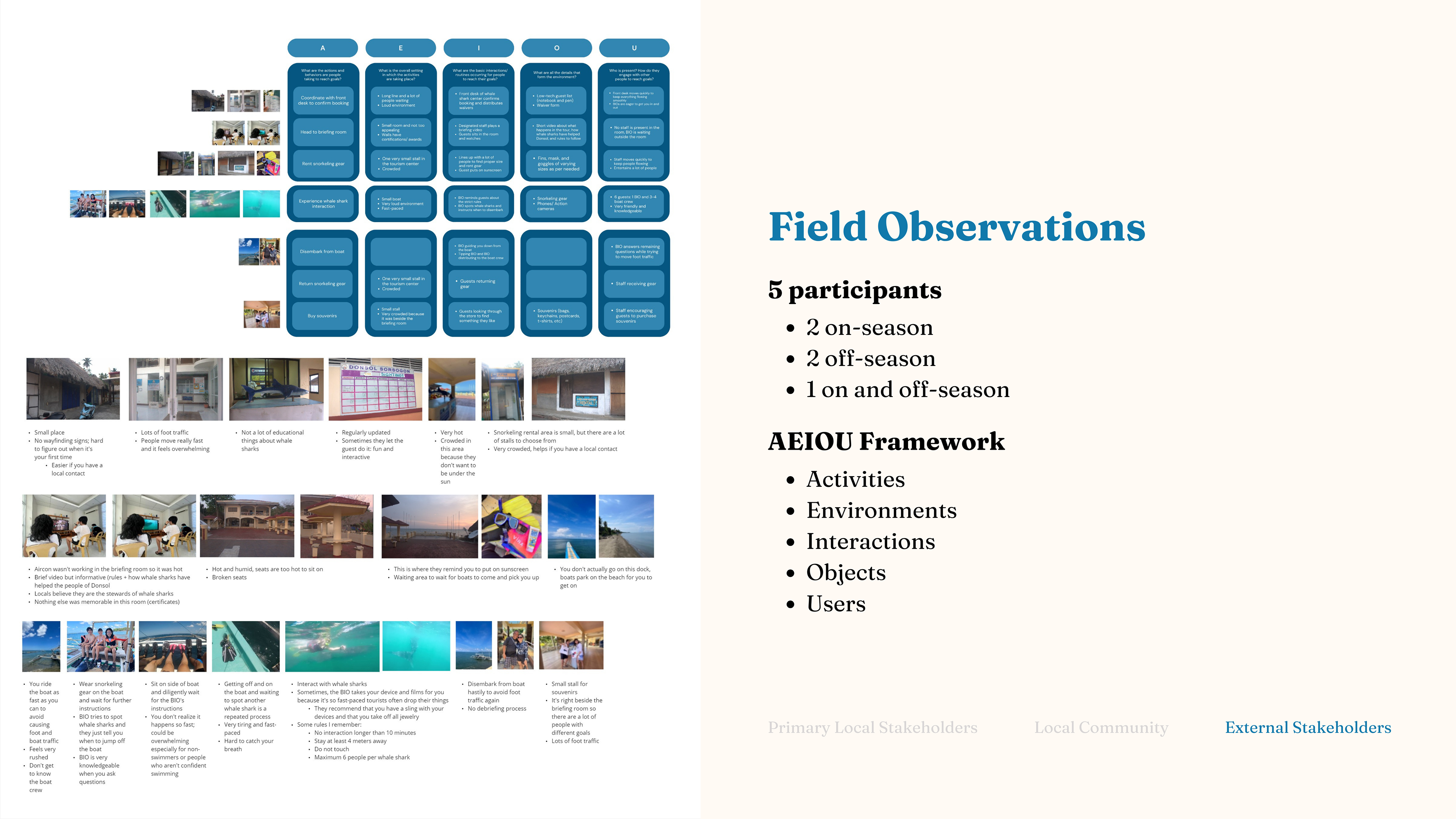
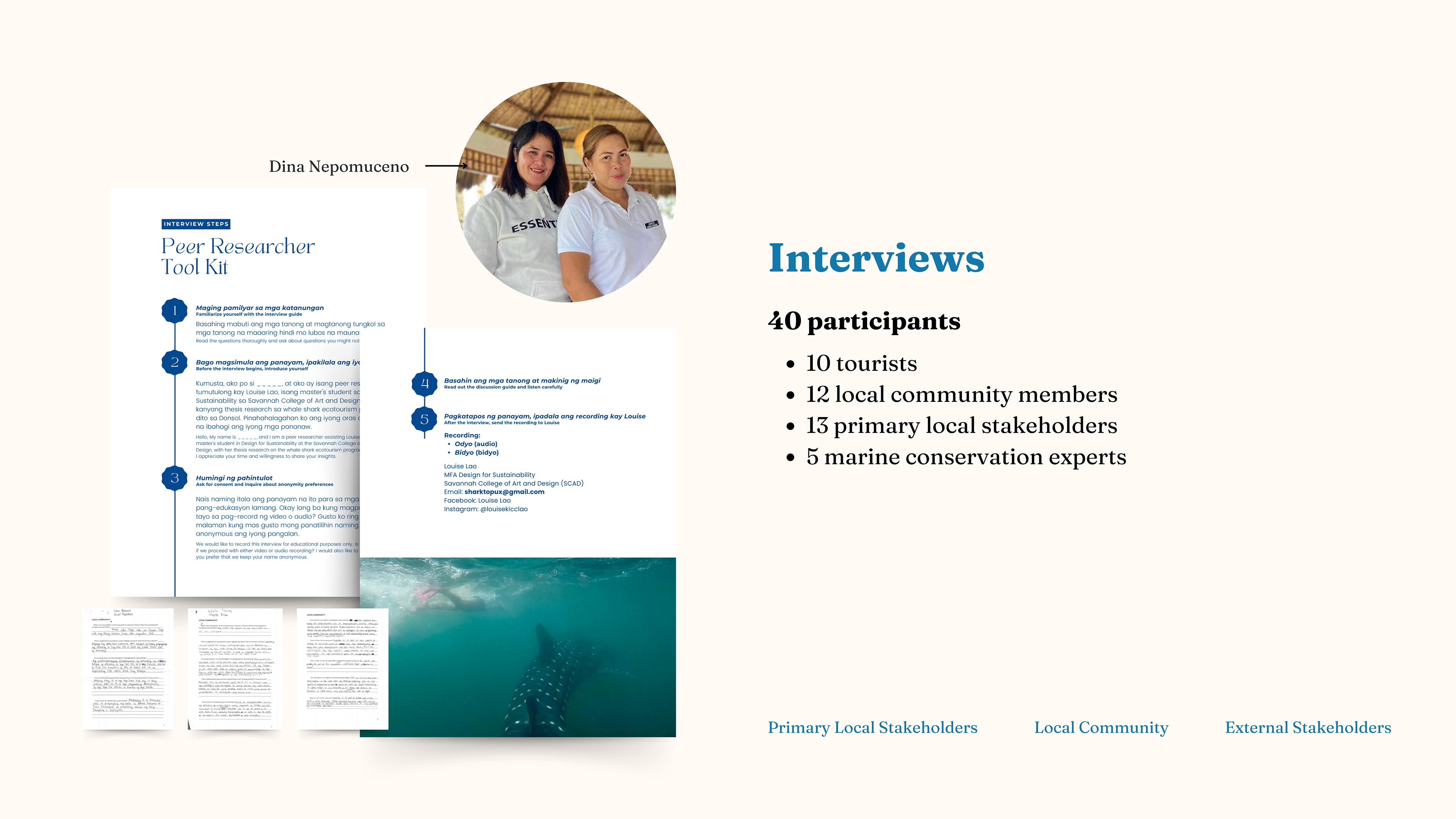
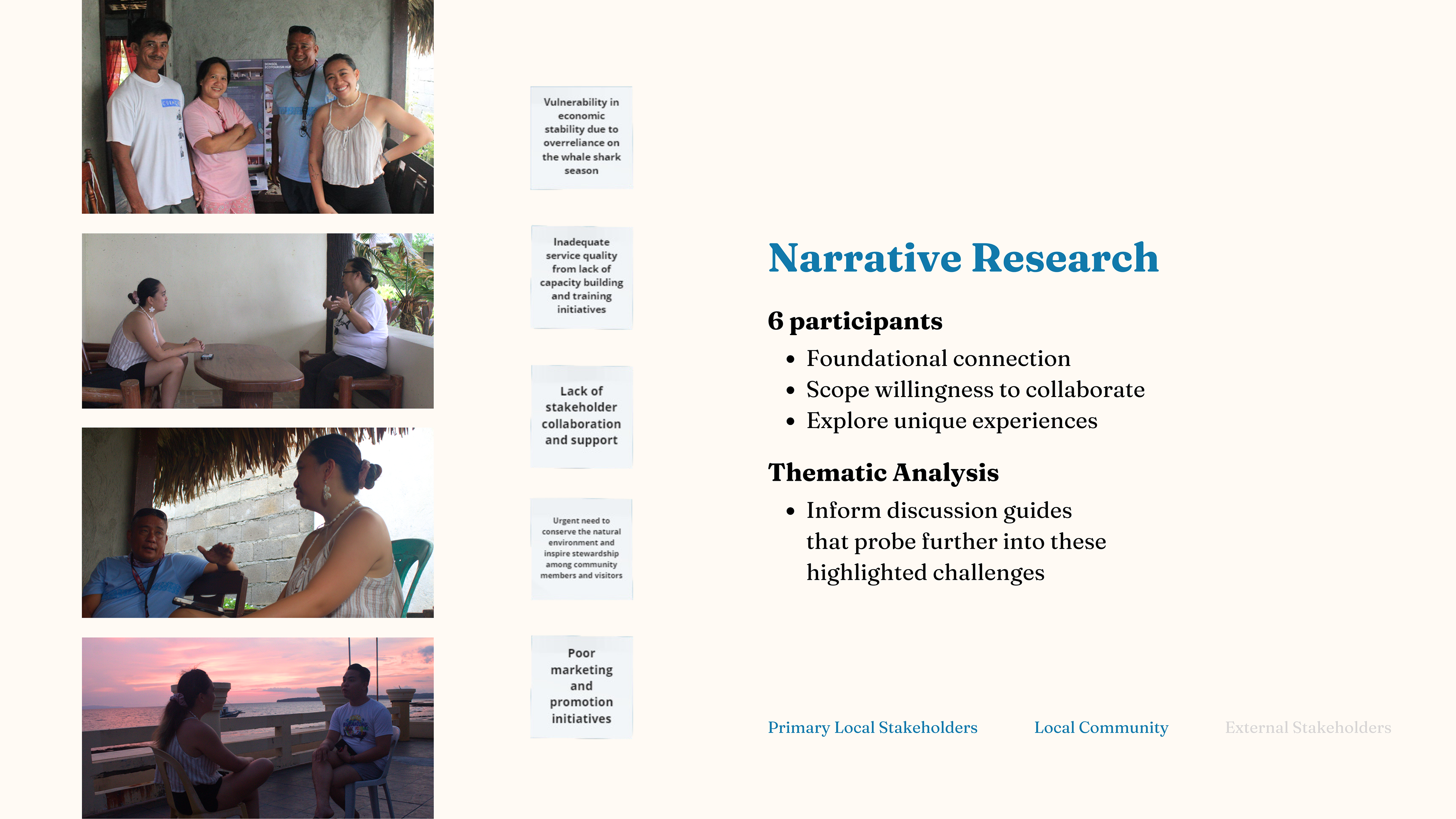
Due to logistical constraints preventing personal travel to the Philippines, a Peer Researcher Toolkit was designed to facilitate remote data collection for the study. In order to overcome this limitation, this Peer Researcher Toolkit was meticulously crafted, enlisting the assistance of a local resident on-site in Donsol, Dina Nepomuceno, ensuring the continuity and depth of the research. The peer researcher underwent interview training with the researcher and maintained constant communication throughout the duration of primary research data collection. An interview guide containing both English and Tagalog versions and a version fit for note-taking was provided, aimed at enhancing comprehension and fostering clear communication throughout the interview process. Furthermore, the toolkit incorporated detailed instructions on essential aspects of the interview process such as obtaining informed consent, addressing concerns regarding anonymity, and the proper techniques for recording interviews. This comprehensive training not only ensured the reliability and validity of the data collected but also upheld ethical standards in participant interactions. The involvement of a local resident also fostered a collaborative methodology and ensured a nuanced understanding of the cultural context.
Data Analysis:
Affinity mapping proved to be the most suitable method for analyzing the extensive qualitative data collected in this research. With a total of 2187 data points, including field observation notes, initial interviews conducted under narrative research, relevant survey responses, and interviews from primary local stakeholders, the local community, and tourists, the volume and diversity of data required a systematic approach to extract actionable insights.
Design Opportunity:
In response to the pressing need to cultivate a shared commitment between local stakeholders and tourists to marine conservation through Donsol’s whale shark ecotourism program, this design opportunity lies within increasing educational touchpoints within the program. By leveraging interpretive design strategies, this aims to foster greater synergy between the local community and tourists by addressing critical gaps in information and education provision, marketing and promotion, and seasonal dependency mitigation. This design intervention seeks to create an impactful intervention that not only enhances the visitors’ experience but also alleviates pressure from local stakeholders, especially the Butanding Interaction Officers (BIOs).
Co-Creation Workshop (Tourists):
A co-creation workshop convened on April 1, 2024, engaging 11 participants (including the researcher), to explore the central question: “How can we enhance our understanding of whale sharks and marine conservation through increased educational touchpoints within the whale shark ecotourism program in Donsol?” Utilizing various co-creation workshop methods, participants collaborated to identify brand values, personalities, visual styles, and tones essential for the design intervention. The workshop took place both online via Zoom and in Virtual Reality to simulate presence and interaction effectively even within digital realms.
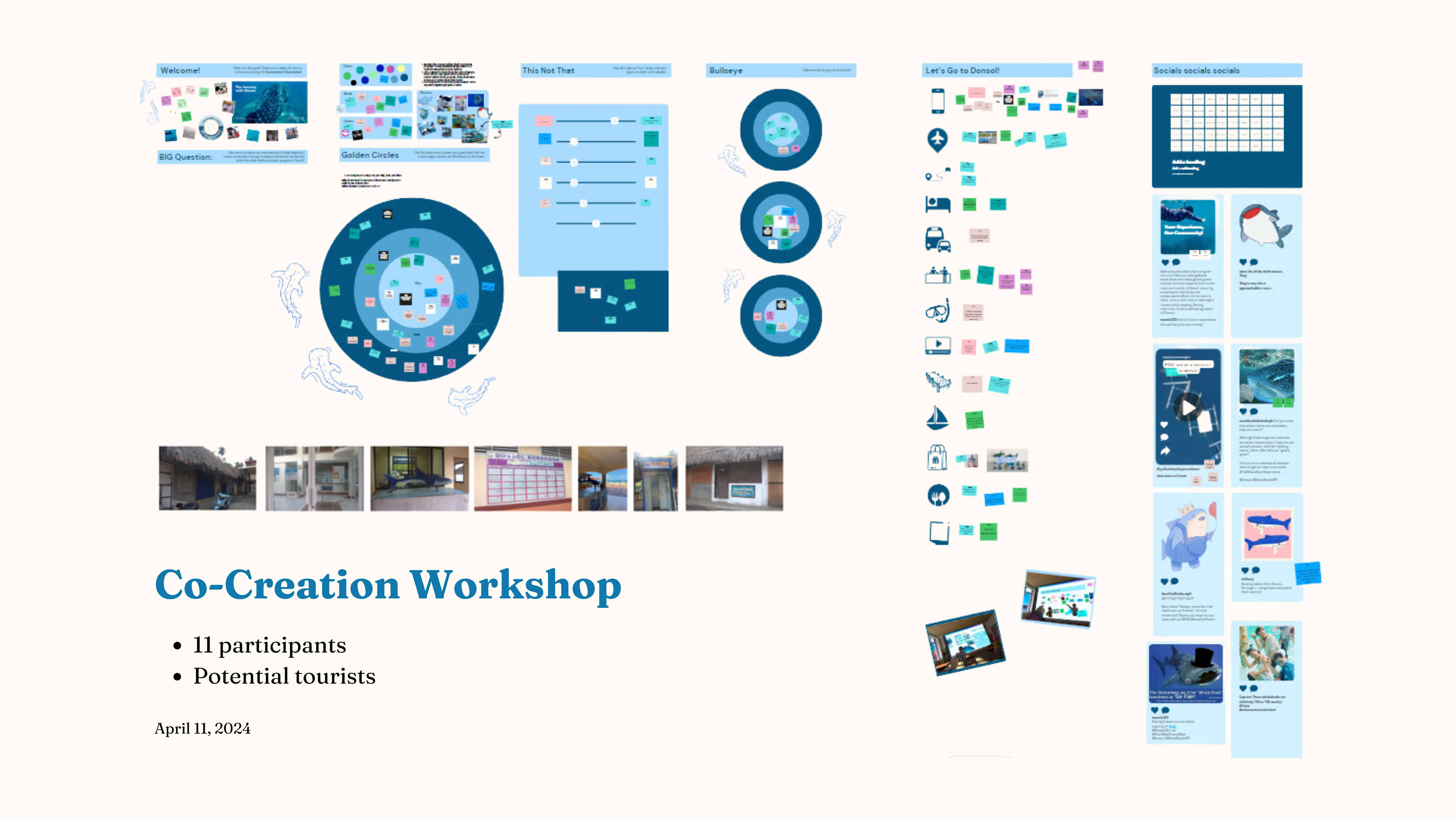
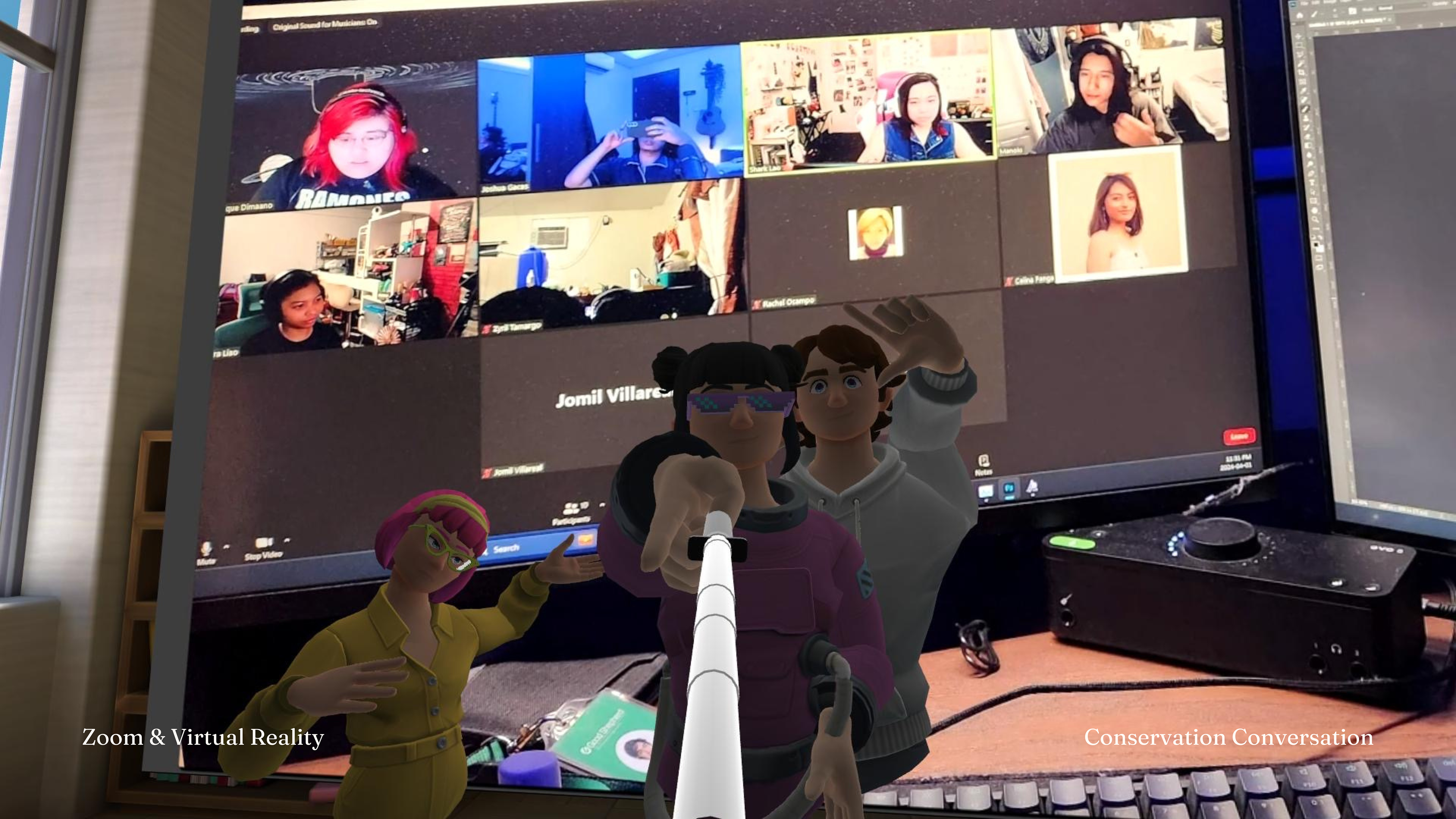
Co-Creation Workshop (Locals):
A co-creation workshop was conducted via Messenger call, engaging three local community members on April 17, 2024, with the specific objective of refining the messaging for Donsol’s whale shark ecotourism program. Employing a series of exercises such as storytelling and word association tasks, the workshop facilitated a collaborative exploration of thematic concepts. Through iterative discussions and brainstorming, the participants arrived at a consensus on the program’s message: “Where guardians of the sea meet
gentle giants of the deep.”
gentle giants of the deep.”
User Testing:
User Testing: The development of the Buhay Donsol logo was a collaborative and iterative process, incorporating feedback from the researcher's committee chair and insights gathered from user testing. User testing conducted at Earth Day Savannah on April 19, 2024, at Daffin Park provided valuable feedback that helped fine-tune the logo to resonate with the target audience effectively. This iterative approach ensured that the final logo accurately represented the program's objectives and resonated with stakeholders and potential visitors alike. This appendix will provide a comprehensive overview of the iterative journey undertaken to create the Buhay Donsol logo, including the various design iterations, feedback received, and adjustments made based on input.
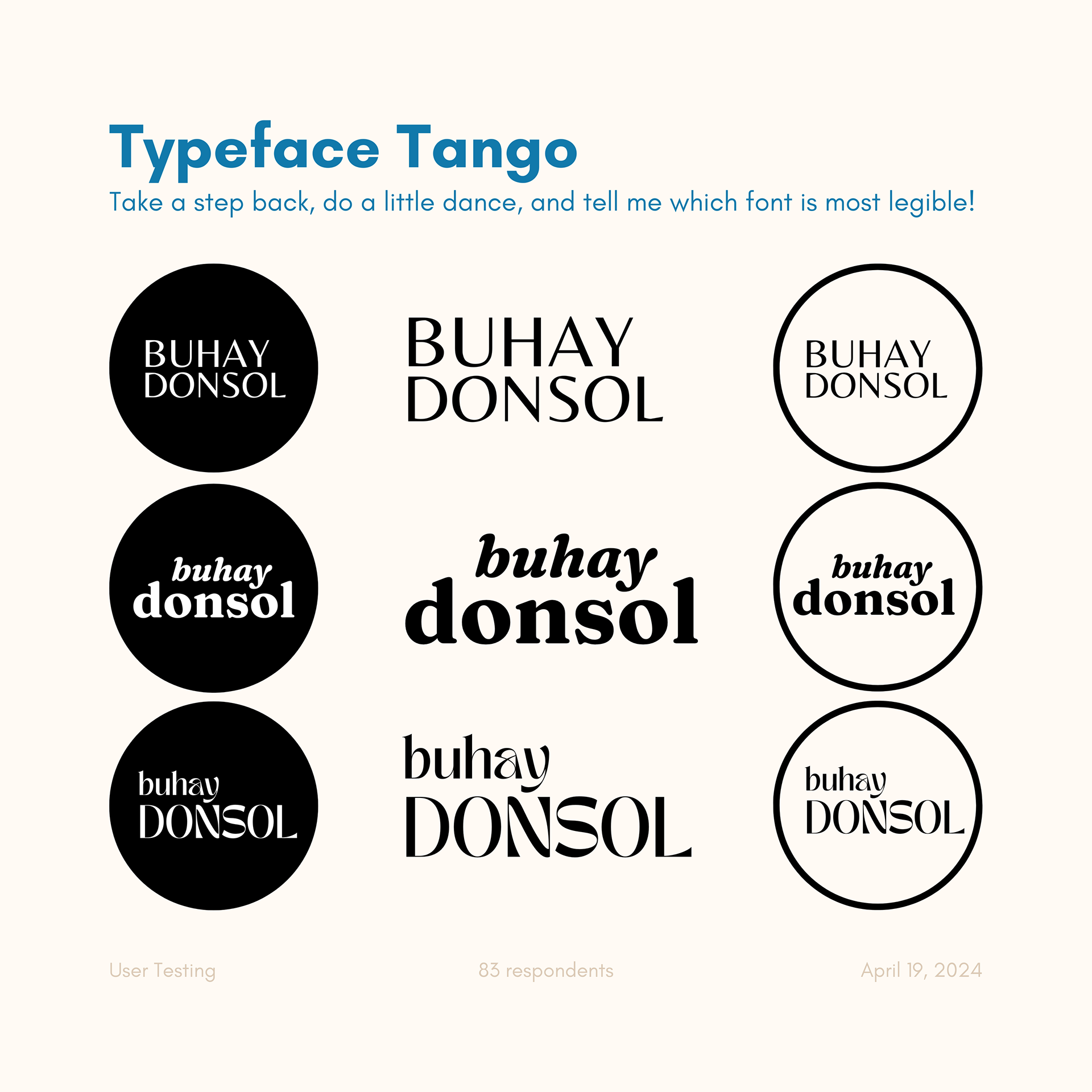
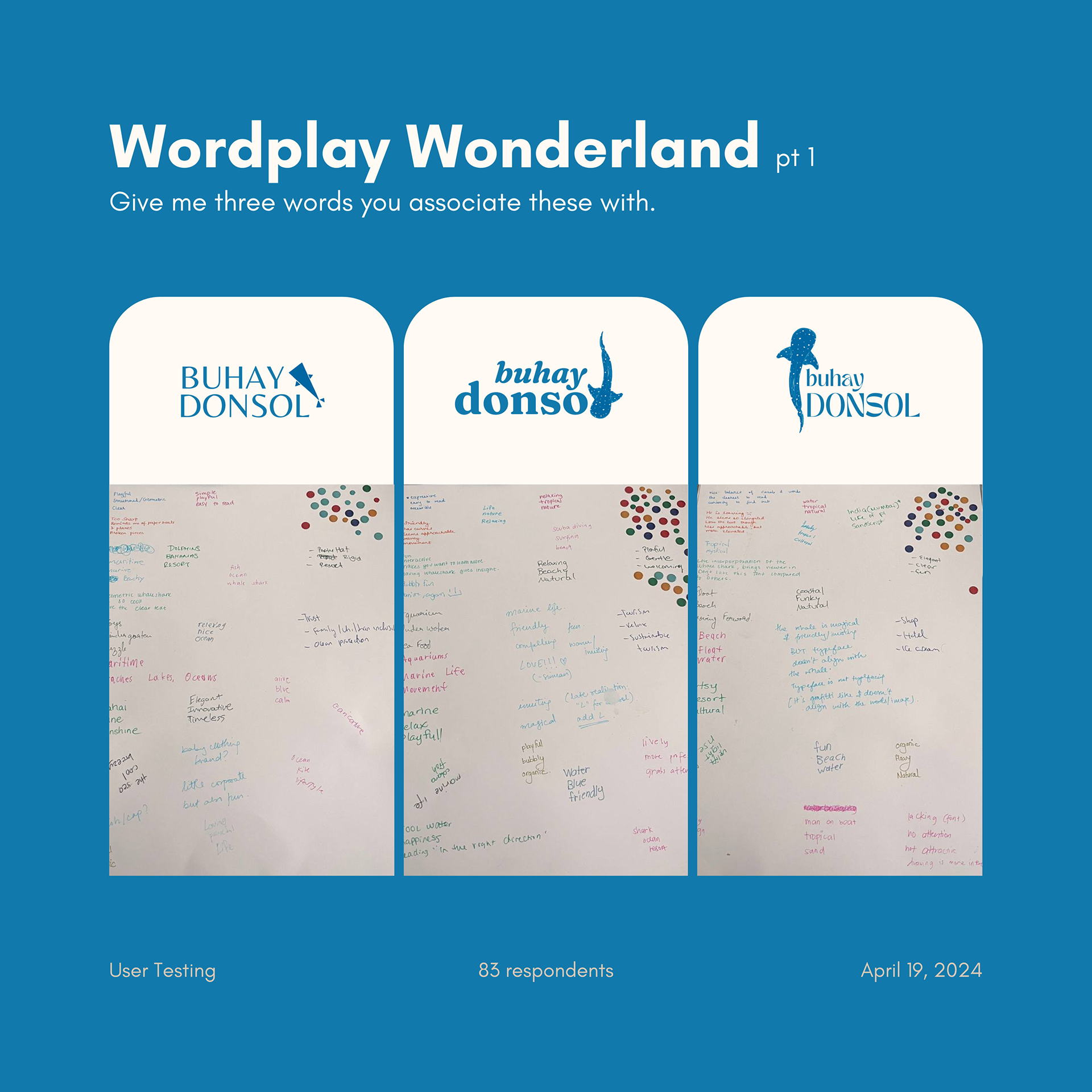
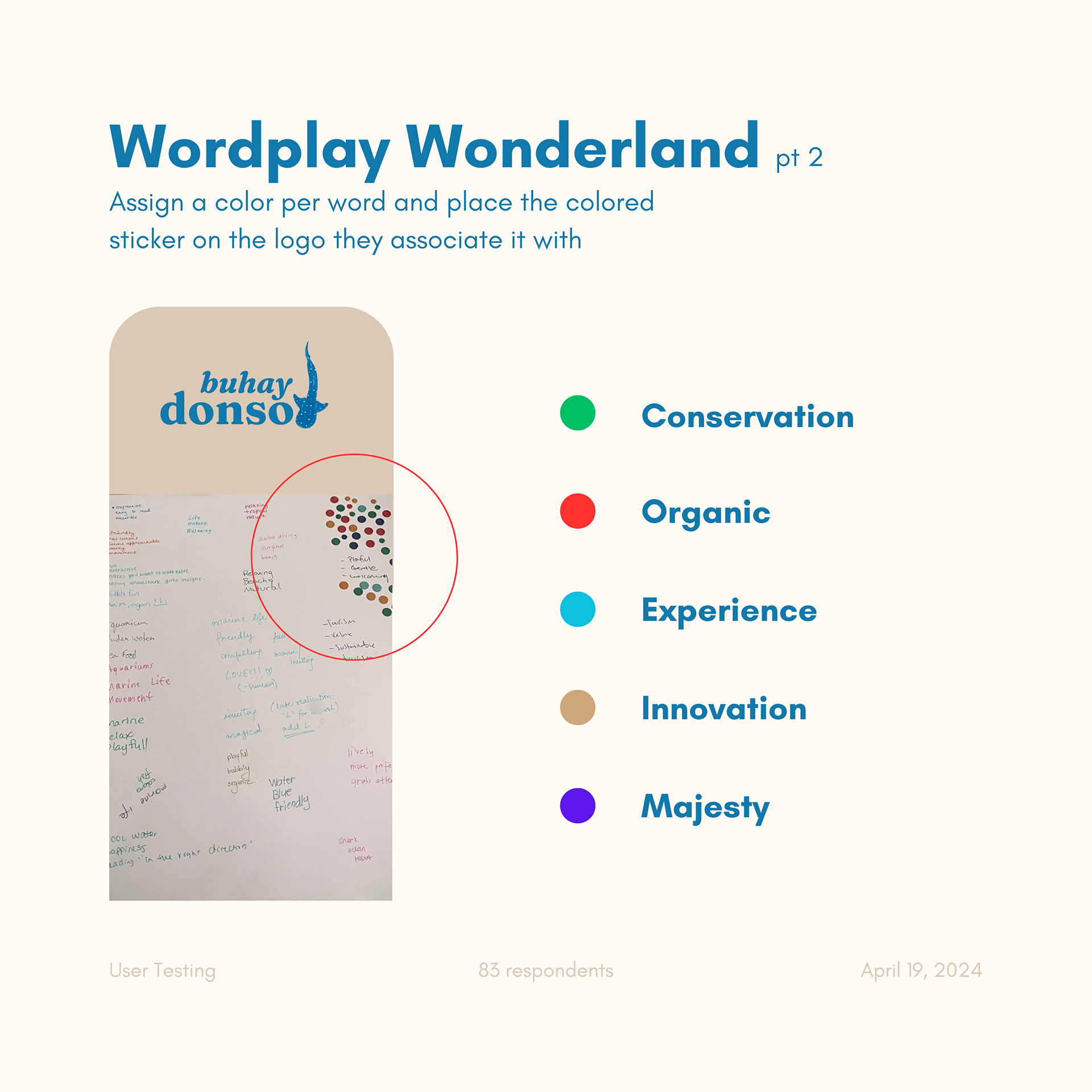
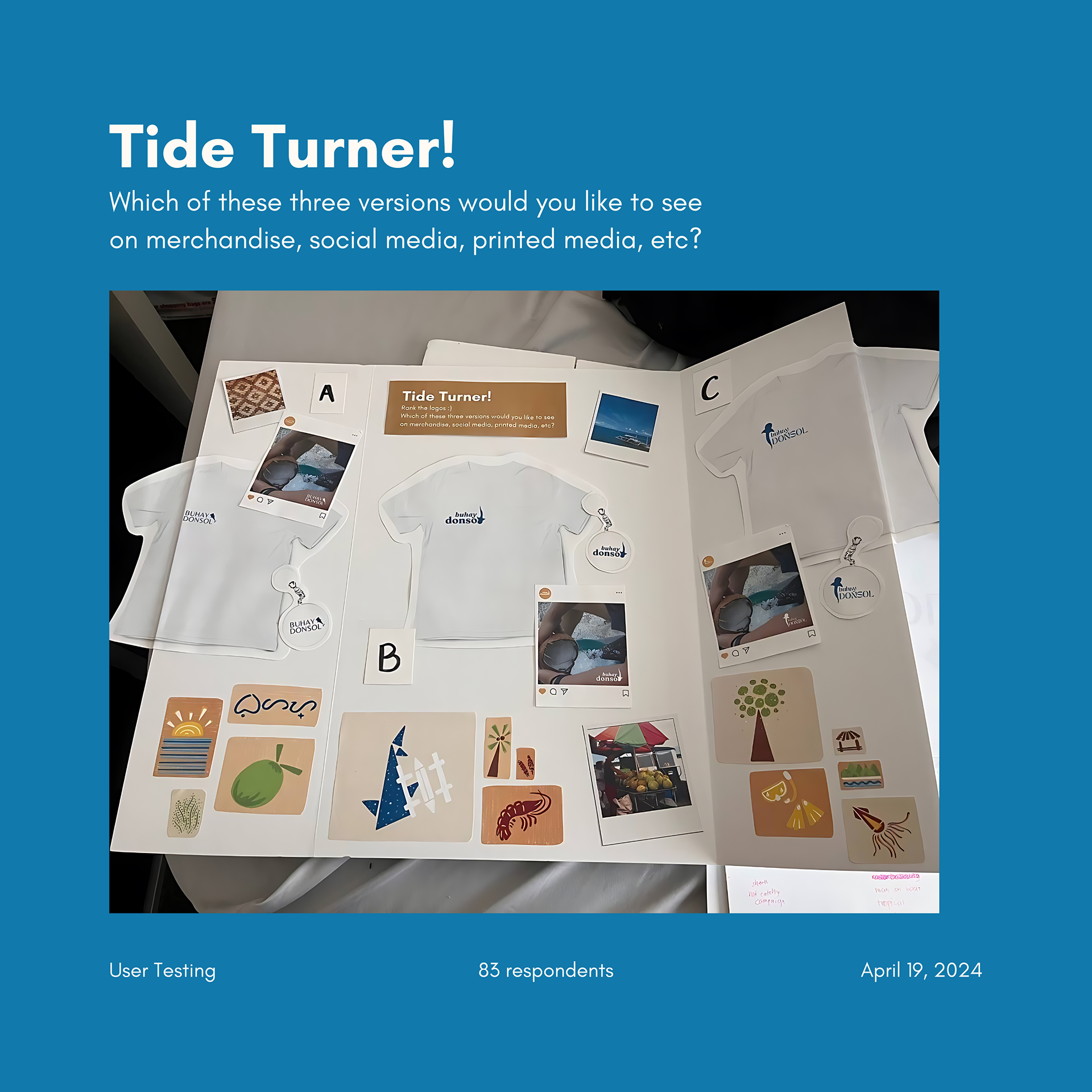
Visual Identity:
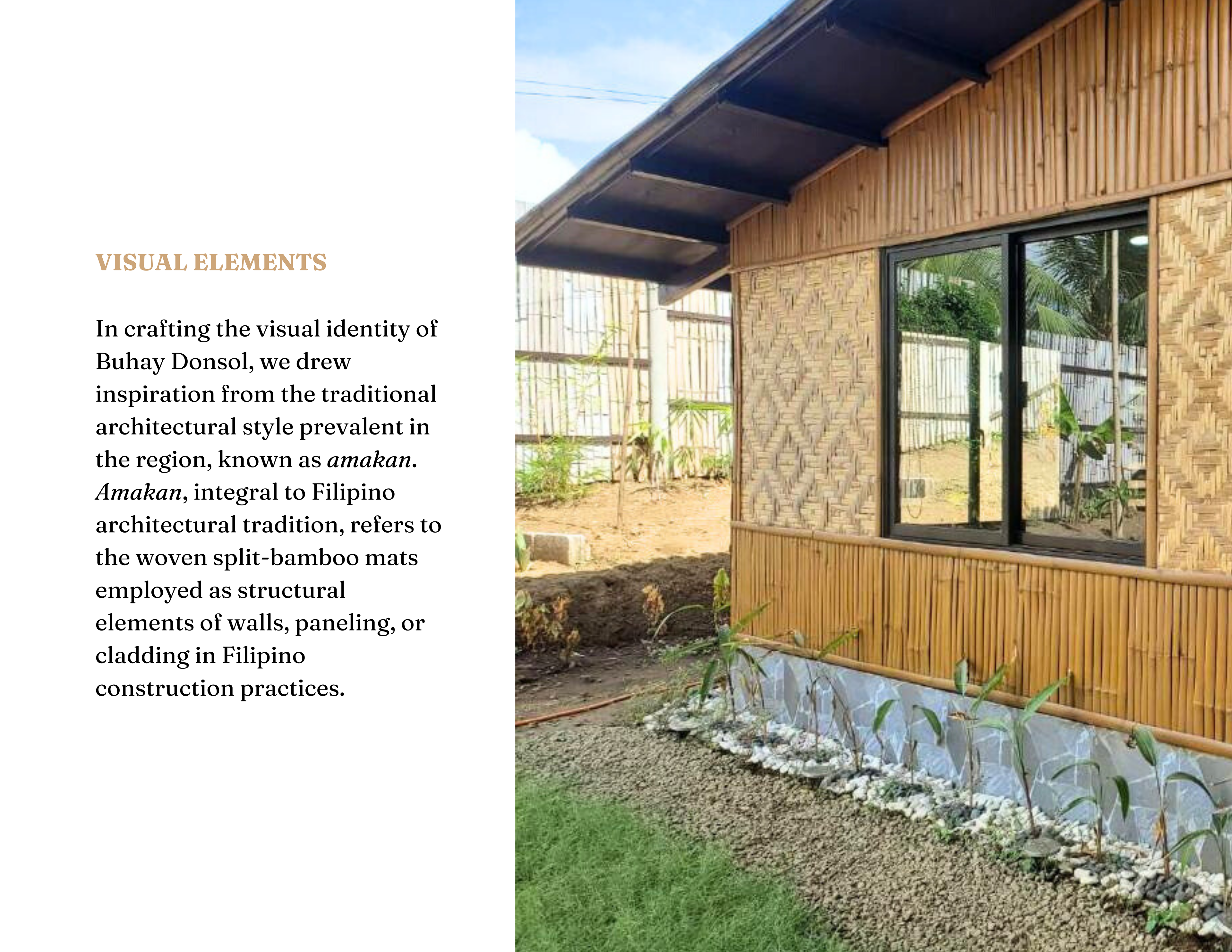
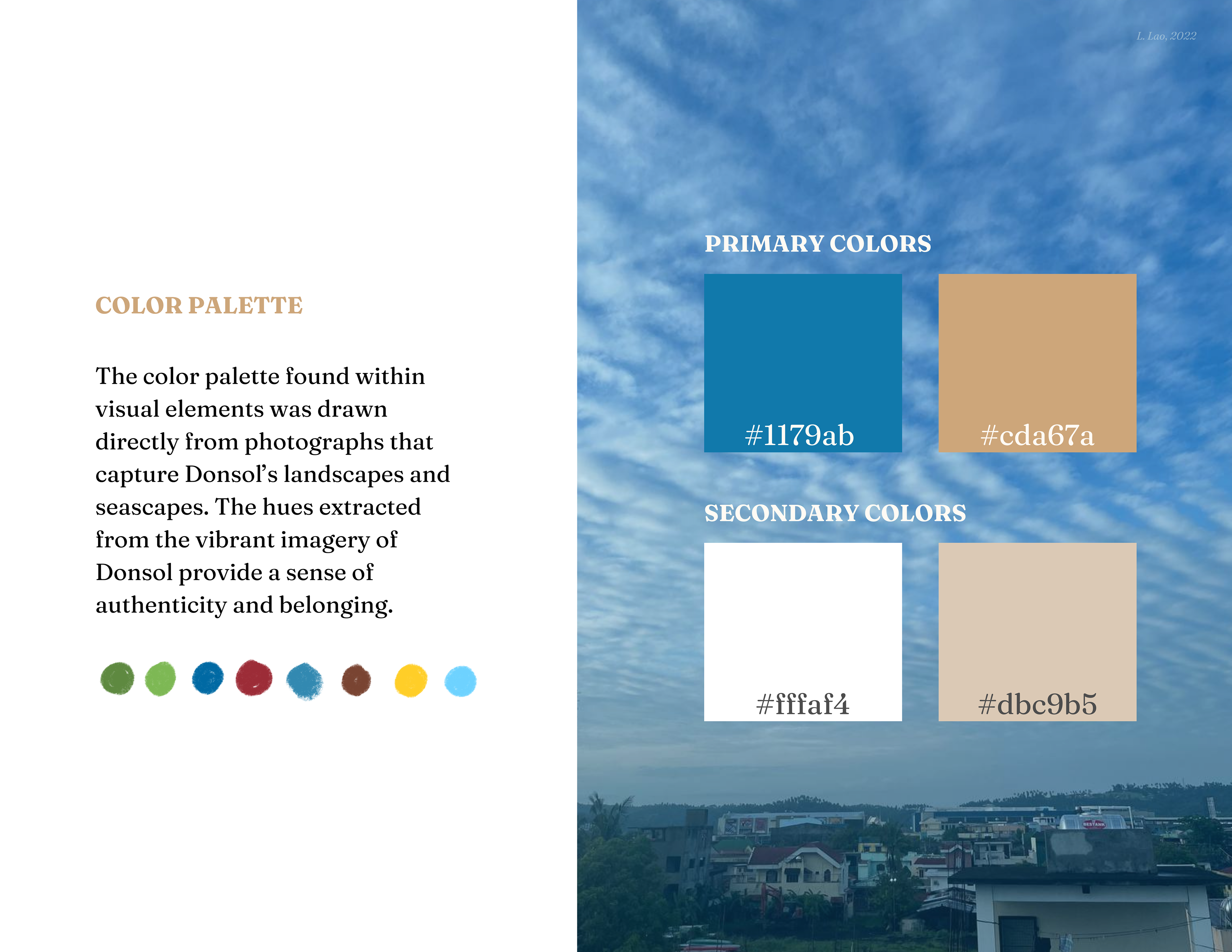
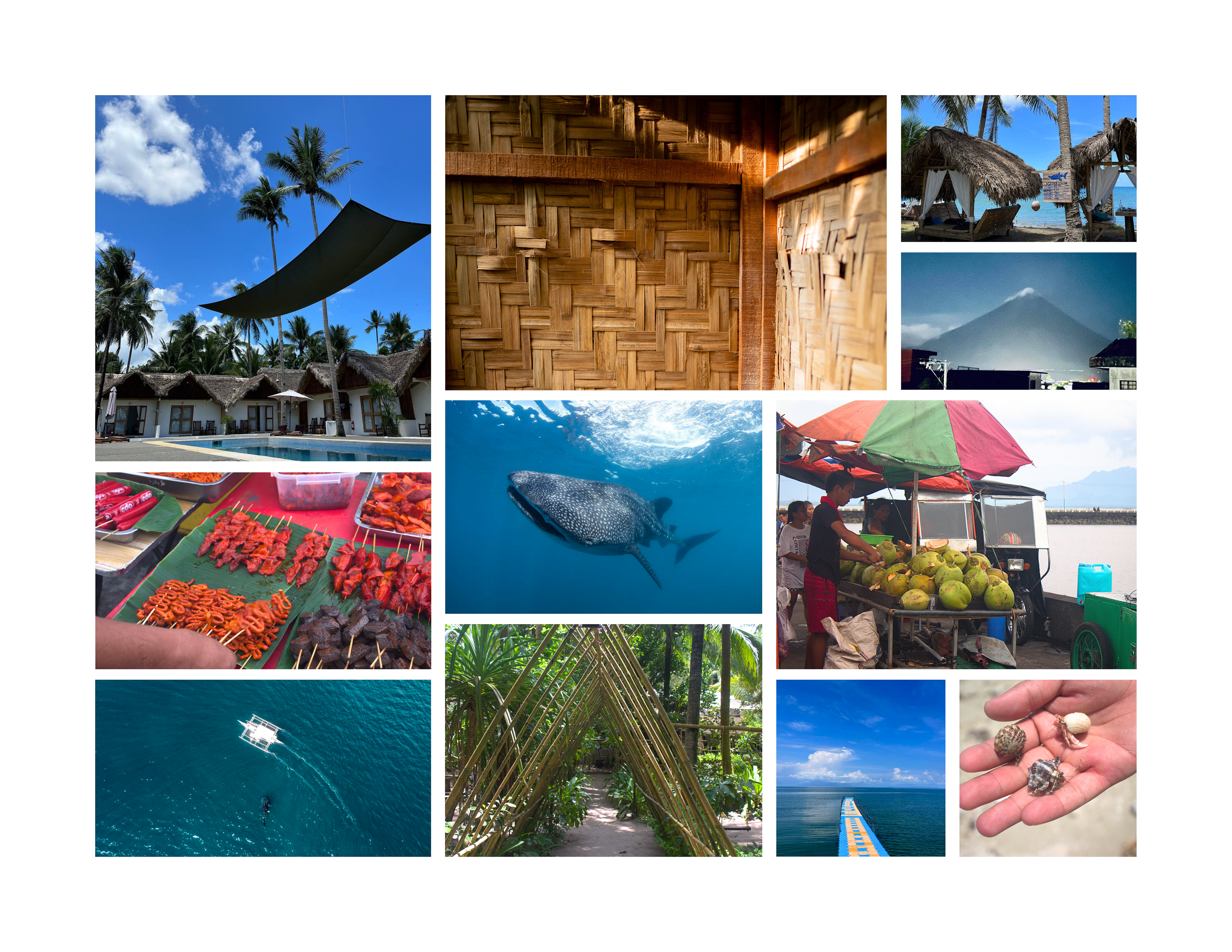
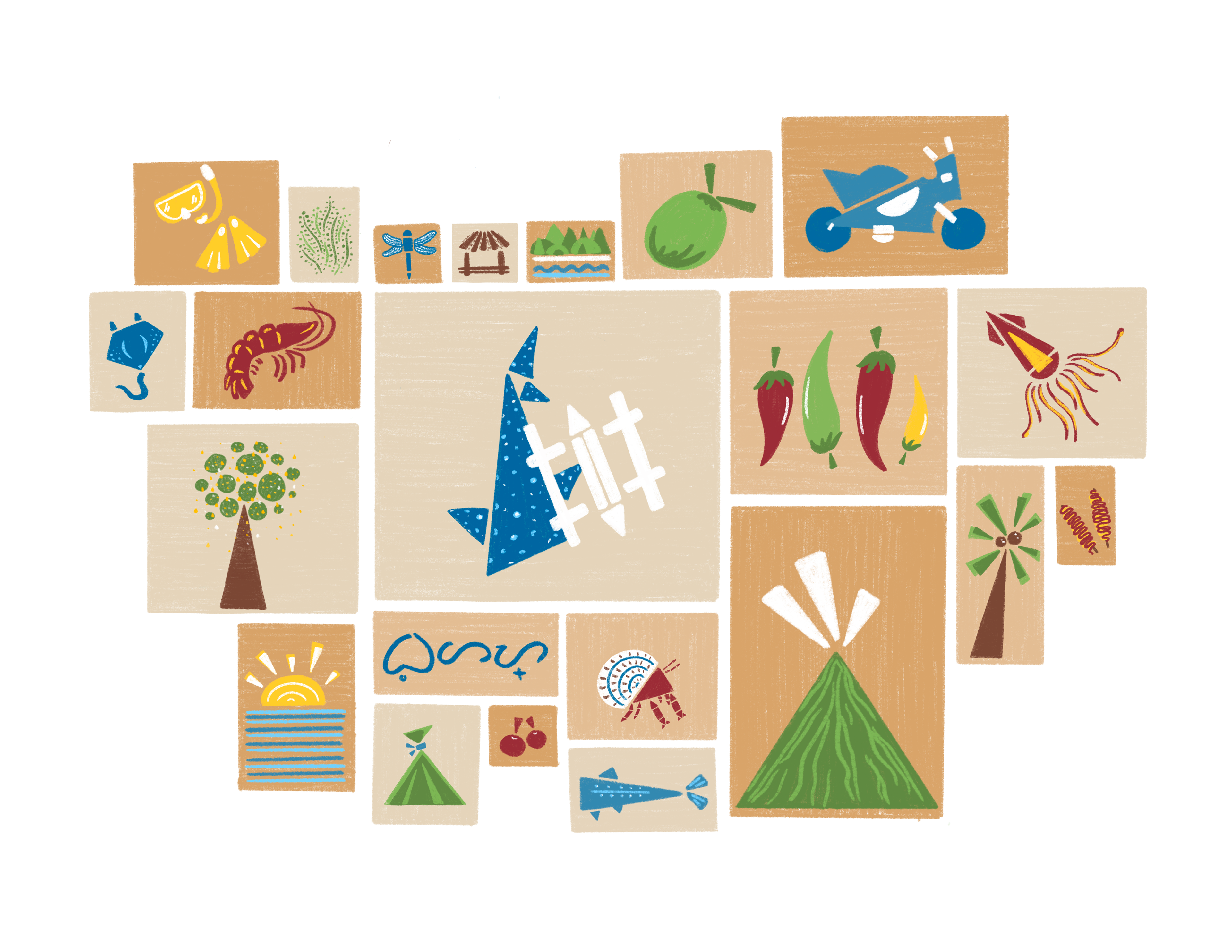
Buhay Donsol:
Buhay Donsol is dedicated to fostering responsible interactions between visitors and the natural environment of Donsol. Our mission is to actively contribute to marine conservation while supporting the livelihoods and well-being of the local community. Through our commitment to sustainable tourism practices, we strive to create meaningful connections between people and nature, ensuring that both present and future generations can continue to cherish and coexist harmoniously with the wonders of Donsol's marine ecosystem.
The following components of Buhay Donsol collectively contribute to the outcomes required to facilitate systemic change and impact. These embody the principles of interpretive design, following the steps outlined by Steven Van Matre's interpretive design dance. They serve as a welcome, orienting visitors to the significance of Donsol's marine ecosystem and the importance of responsible tourism practices. Through guided experiences, visitors are educated on the ecosystem's fragility and the role it plays in its conservation. Messages are reinforced at every opportunity, ensuring that visitors leave with a deep understanding of their impact and a commitment to positive action. Moreover, Buhay Donsol provides a means for visitors to evaluate their experiences and contributions, empowering them to make informed decisions and feel motivated to continue their support for marine conservation efforts. Throughout the customer journey, various components of Buhay Donsol can be seamlessly integrated to enhance the overall experience for visitors. From the initial planning stage to post-visit interaction, these components serve as guiding pillars, ensuring that tourists are not only entertained but also educated about responsible tourism practices and marine conservation efforts.
Buhay Donsol forges a path towards a future where oceans teem with life, communities thrive in harmony
with nature, and where the legacy left for generations to come is one of stewardship, responsibility, and
sustainability. In closing, as one reflects on the journey of exploration and discovery embarked upon by this thesis,
be reminded of the profound interconnectedness between humanity and the natural environment. This research is an
invitation for unwavering commitment and determination, for the challenges facing this world and its ecosystems
are great, but so too is humanity’s capacity for change.
with nature, and where the legacy left for generations to come is one of stewardship, responsibility, and
sustainability. In closing, as one reflects on the journey of exploration and discovery embarked upon by this thesis,
be reminded of the profound interconnectedness between humanity and the natural environment. This research is an
invitation for unwavering commitment and determination, for the challenges facing this world and its ecosystems
are great, but so too is humanity’s capacity for change.
SCAD | Spring 2024 | Mentored by: Professor Scott Boylston, Professor Cathy J. Sakas, and Professor Satyakam Sharma | MFA Thesis